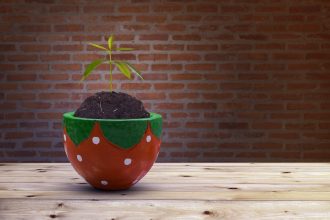There are a variety of reasons why you might be considering moving to a new and smaller home: the kids have moved out, it’s getting difficult to maintain a large house, or you’re just looking for a change. Downsizing can have many benefits, but if you’re thinking of taking the leap to smaller living, there are some things you should consider, and some steps you’ll need to take to prepare. Downsizing means more than hiring a moving truck. It can mean a subtle (or major) shift in your lifestyle. Here, then, are the things you should know before you take the plunge.
There are many upsides to living smaller
If you’ve decided to move to a smaller home, the first thing you should do is start getting excited! It might seem counterintuitive to celebrate cutting back, but downsizing can be exhilarating. After all, it’s a chance to create the home of your dreams, to get to know a new neighbourhood, and to take charge of your life. Having a smaller home means having more free time—for most, it’s much easier to maintain a smaller home. Additionally, smaller homes have a smaller environmental impact, so you can feel better about your ecological footprint. Smaller homes also tend to be cheaper to both buy and maintain, particularly when it comes to energy bills. After your move, you might just find yourself with some extra cash. Who wouldn’t be excited about that?
Start preparing as soon as possible
If you’ve been in a family home for a long time, you’ve probably forgotten how many small steps are involved in a move. Sure, there’s packing and hauling boxes, but there’s also all the work of cleaning, organizing, and decorating. You may think you’re ready, but as the moving date approaches, you might find that certain tasks take longer than you had anticipated. Cleaning out a junk drawer can take all day, and sorting through family photographs can make the hours melt away as you get pulled in by the memories. Your best defense is to start as early as possible. Do all the heavy work early on, and you’ll be able to navigate your actual moving day with minimal stress.
Learn as much as you can about your new neighbourhood (or city)
Moving is not just about your home—it’s also an opportunity to get to know a new area. A great way to prepare for your move is to learn more about the neighbourhood or city you’ll be living in. On the practical side, it’s good to know where your local grocery and hardware stores are, as well as the nearby parks and the local businesses. Next, find out what your new area is known for and check it out. Some places are known for their abundance of coffeeshops or microbreweries. Others have lots of organic grocery stores or farmer’s markets. You never know what you might come across in a new spot. Who knows? Learning about your new home might just land you a new hobby.
Do several rounds of discards
One of the most important steps in preparing to move to a smaller home is getting rid of your extra stuff. But it turns out this isn’t just one step — it’s several. Going through your stuff a few times to get rid of items will help you mentally adjust to the idea of getting rid of things. On the first run through your items, you may be unable to bring yourself to get rid of that broken lamp you’ve been planning to fix, but by the second or third round of discards, you’ll be sick of looking at it and more than willing to send it to the local thrift store. A good rule of thumb is: useful or beautiful. That is, the items in your home should be one or the other. If they’re neither, it’s time to say goodbye.
Storage space is vital
When moving into a smaller home, there are features you may have to let go of: an extra-large kitchen, the spare guest room. However, one important thing to have no matter how small your home is storage space. Everyone needs a place to keep their seasonal gear, suitcases, and other occasionally-used items. If your new home doesn’t have much storage space, you’ll have to find clever ways to store your things—in which case, you should research storage methods and make sure you’re up to the challenge. When you’re unpacking boxes in your new home, you’re likely to realize you have more stuff than you may have initially thought.
Many things can be replaced, others can’t be
While we recommend erring on the side of downsizing your stuff, there are probably sentimental items you’d regret tossing. Your kids’ art projects, childhood mementos, or sentimental gifts are things you might want to consider hanging onto. Of course, the older you get, the more sentimental items you tend to accrue, and you might find yourself with more mementoes than you can handle. If that’s the case, you’ll have to get rid of some—but don’t despair. To hold onto a memory, just snap a picture of whatever you plan to jettison. It’s much less trouble to declutter some photos than a roomful of old bowling trophies.
Other people will benefit from your move
Giving stuff away can feel great. Not only does it lighten your load, but it can help those more needy than yourself. In some cases, those people are your kids or friends, who might love to take your old chair or extra blender off of your hands (or buy it for cheap). But if no one in your life wants your stuff, there are plenty of organizations that will gladly distribute your items to people in need. The knowledge that your old stuff has made an impact on another person’s life will definitely soothe the sting of downsizing, and make your whole move feel a little more worthwhile.
Also on RNR:

























